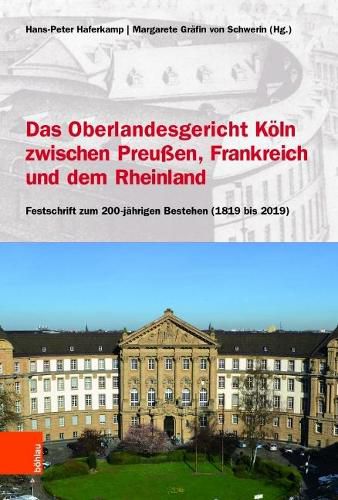Readings Newsletter
Become a Readings Member to make your shopping experience even easier.
Sign in or sign up for free!
You’re not far away from qualifying for FREE standard shipping within Australia
You’ve qualified for FREE standard shipping within Australia
The cart is loading…






The volume documents the history of the Cologne Higher Regional Court between Prussia, France and the Rhineland on the occasion of its 200th anniversary on June 21, 2019. The Rheinische Appellationsgerichtshof zu Coeln, founded in 1819 and renamed Cologne Higher Regional Court in 1879, sat between the chairs. He judged in some areas of law until January 1, 1900 under French law and therefore looked to France, where the Cour de Cassation shaped French law. The higher court superior to him, the Rheinische Revisions- and Kassationsgerichtshof, from 1852 the Prussian High Tribunal, but sat in Berlin until 1879, which lived under Prussian law. His immediate surroundings continued to be shaped by the Rhenish legal traditions of the Ancien Regime. In addition, in Cologne, Catholicism repeatedly came into conflict with the Protestant Prussia. The volume shows how the Rhineland judiciary dealt with the characteristics, wishes and requirements of these different contexts.
$9.00 standard shipping within Australia
FREE standard shipping within Australia for orders over $100.00
Express & International shipping calculated at checkout
The volume documents the history of the Cologne Higher Regional Court between Prussia, France and the Rhineland on the occasion of its 200th anniversary on June 21, 2019. The Rheinische Appellationsgerichtshof zu Coeln, founded in 1819 and renamed Cologne Higher Regional Court in 1879, sat between the chairs. He judged in some areas of law until January 1, 1900 under French law and therefore looked to France, where the Cour de Cassation shaped French law. The higher court superior to him, the Rheinische Revisions- and Kassationsgerichtshof, from 1852 the Prussian High Tribunal, but sat in Berlin until 1879, which lived under Prussian law. His immediate surroundings continued to be shaped by the Rhenish legal traditions of the Ancien Regime. In addition, in Cologne, Catholicism repeatedly came into conflict with the Protestant Prussia. The volume shows how the Rhineland judiciary dealt with the characteristics, wishes and requirements of these different contexts.